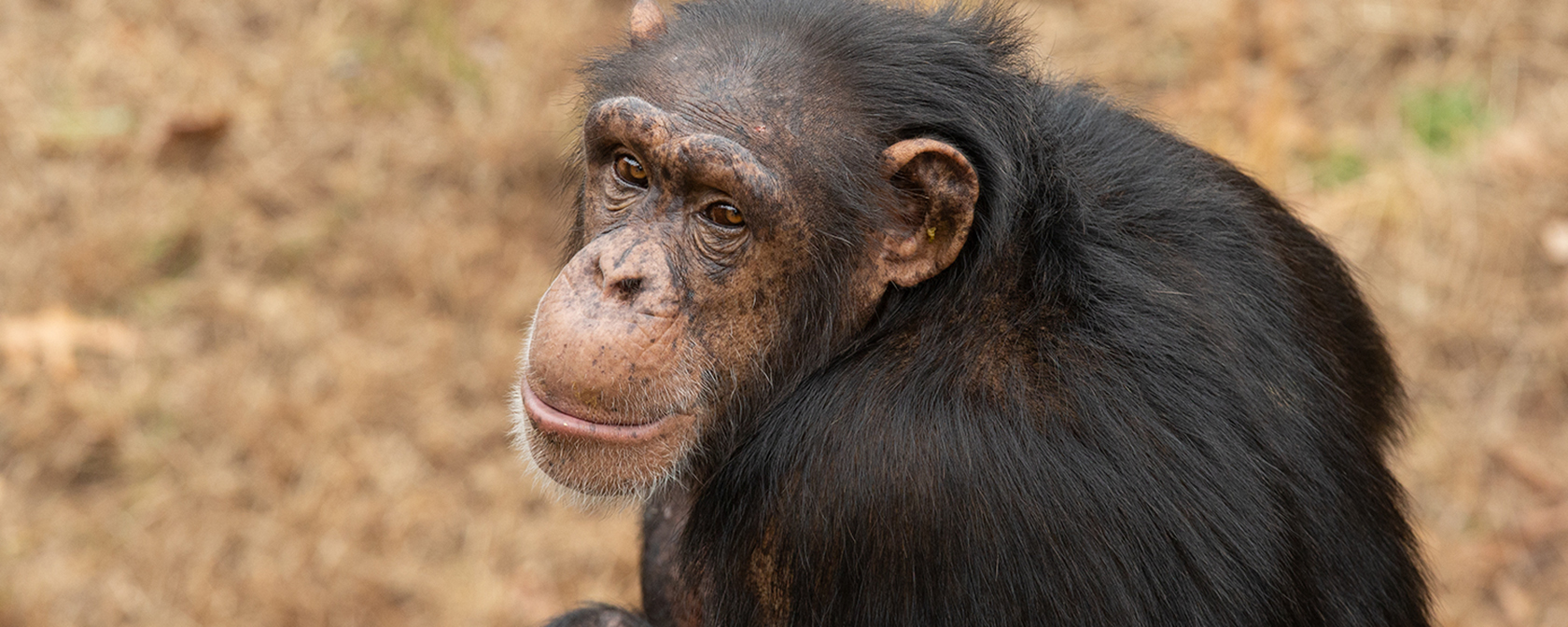By Sara Amundson and Kitty Block
There is renewed hope for thirty chimpanzees languishing in a New Mexico laboratory as part of our long-standing fight to give chimpanzees who were subjected to experiments a chance at sanctuary life. Last month, we won a significant ruling in a lawsuit that we filed in 2021 with Animal Protection New Mexico and three individual plaintiffs, charging that the National Institutes of Health cannot lawfully refuse to retire federally owned chimpanzees formerly used in research to Chimp Haven, the federal sanctuary. According to the judge, NIH’s decision to deny sanctuary retirement to dozens of chimpanzees at Alamogordo Primate Facility (APF) in New Mexico violated the federal Chimpanzee Health Improvement, Maintenance and Protection (CHIMP) Act.
These remarkable animals—who can live well into their 60s—have been through a lifetime of trauma and pain. They deserve to live out their final years at Chimp Haven, a lush sanctuary for federally-owned chimps in Louisiana, where they can enjoy the comfort and peace they have long been denied.
Our hard-fought battle to end the suffering of chimpanzees in labs started decades ago, but our commitment to the cause has never wavered.
In 2000, we worked alongside a coalition of animal protections organizations to secure passage of the CHIMP Act, creating and funding a federal sanctuary system for chimpanzees. For years after passage of that landmark bill, we worked to end harmful experiments on chimpanzees—and we were jubilant in 2015 when our petition to grant captive chimpanzees the same protections that wild chimpanzees received under the Endangered Species Act was successful.
This success made it highly unlikely that chimps could ever again be used in harmful experiments in the United States. Ours was the only country in the world that still used chimps in experiments, so this essentially ended the practice worldwide. Soon after, the NIH announced that it was ending all experiments on chimpanzees and moving all chimpanzees owned or supported by the government to Chimp Haven. The NIH also stopped funding experiments on privately owned chimpanzees in laboratories.
But after the announcement, a veterinarian employed by Charles River Laboratories—which receives a lucrative, taxpayer-funded, government contract to keep the chimpanzees at APF—claimed that many of the chimps were too fragile to move and should instead spend the rest of their lives at the very laboratory where they were subjected to invasive experiments.
As a result, in 2019 NIH made an incredibly cruel announcement: after a lifetime of biomedical research experiments, none of the 44 chimpanzees languishing at APF would move to Chimp Haven, denying them the life they deserved and had been promised four years earlier. The NIH cited an internal review that agreed with Charles River’s flawed and self-interested assessment. Importantly, the members of the review panel never saw the chimpanzees, or the living conditions at APF, in person.
Since Chimp Haven’s founding, hundreds of chimpanzees of all ages and health conditions have moved there without a single death occurring during transport. Elderly chimpanzees have thrived at the sanctuary, including a chimpanzee named Grandma who was deemed to be fragile when retired to Chimp Haven in 2005, yet lived happily there for another 10 years, reaching the age of 62. Or Lady Bird, who moved to Chimp Haven when she was 55 and also lived to be 62.
NIH’s decision was both inhumane and unjustifiable—and more than 150,000 of you agreed, contacting NIH at our urging to demand that the agency reverse its decision. When the NIH refused, we filed our lawsuit in 2021.
The judge’s ruling is a vindication, but it comes too late for some chimps. In the years since NIH’s announcement, 14 chimpanzees have died or been euthanized waiting for their chance to leave the New Mexico lab. It is heartbreaking to know that the NIH’s refusal to give these chimpanzees the life they so deserved in 2019 likely cost them the chance to spend their final months or years at Chimp Haven. However, we are hopeful that the chimpanzees remaining at APF will experience the freedom and joy of sanctuary life.
Kitty Block is CEO of the Humane Society of the United States




